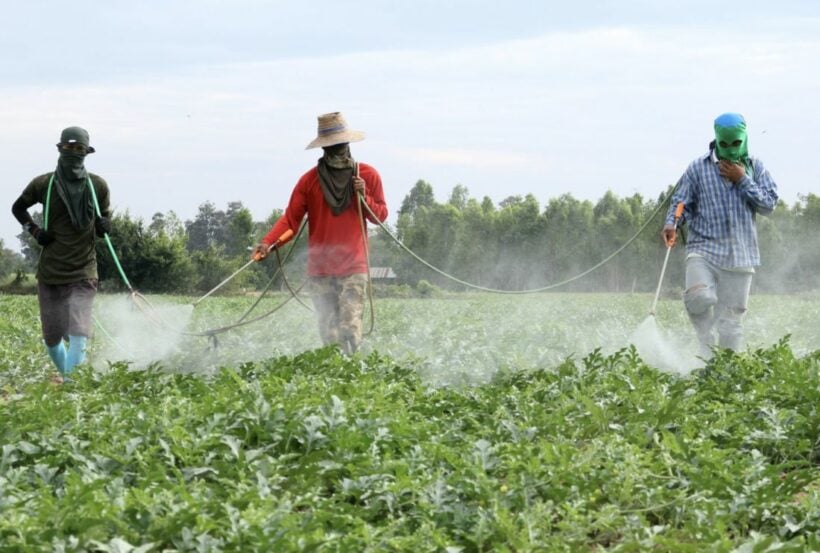Farmers seek injunction on chemical ban

A farmers’ organisation will appeal to the Central Administrative Court on Monday October 28 for an injunction on the ban of three agricultural chemicals – paraquat, chlorpyrifos and glyphosate – which was approved by the unanimous vote of Hazardous Substance Committee on Tuesday.
The secretary-general of Federation of Safe Agriculture (FSA), said on Saturday that the FSA and representatives of farmers who grow sugarcane, tapioca, oil palm, rubber, corn, and fruits will approach the court seeking a stay.
“There are currently no concrete measures to provide alternative pesticides or weed killing machines to affected farmers by the government, which means farmers have to take care of the weed/pest problems by hiring additional labourers,” he said. “In the end, the ban on the three chemicals will only increase the production costs,” according to the secretary.
He said he will ask for a stay on the grounds that the voting process of the Hazardous Substance Committee did not comply with the prime minister’s order to have the issue discussed by four related parties: the government, importers, farmers and consumers. “There was no presence of importers at the meeting, and representatives of farmers only came from the organic agriculture group and lacked the presence of farmers of economic crops who rely on these chemicals,” he said. “I hope the court will consider halting the ban until the issue is thoroughly studied by related parties and suitable supporting measures are ready.”
The secretary general will submit a letter to Hazardous Substance Committee to question the possible double standard of Thailand still importing fruits and vegetables from countries that allow paraquat and glyphosate, including China, Japan and the US. “If we ban these substances in Thailand, we should stop importing products from these countries too, or domestic products won’t be able to compete due to increased costs.”
Statistics from Department of Agriculture reveal that Thailand still has stocks of nearly 30,000 tons of these three chemicals, and the cost to safely eliminate them is estimated at 3 billion baht.
SOURCE: nationthailand.com
Latest Thailand News
Follow The Thaiger on Google News:


























